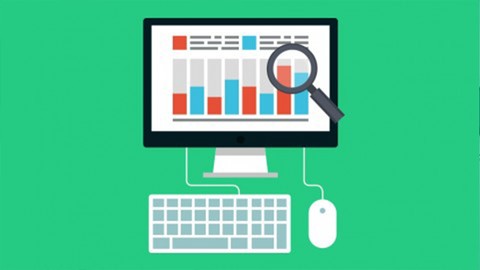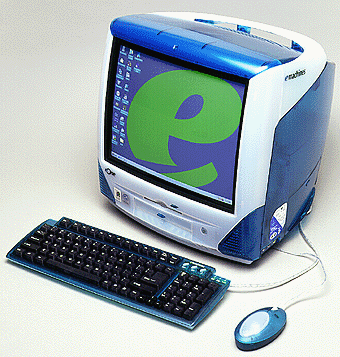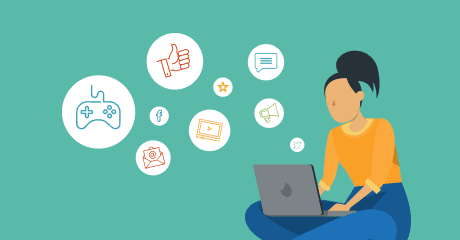This short article appeared in the June 2020 concern of Find journal as “Will A.I. Make Medicine Additional Human?” Subscribe for more tales like these.
Right now, likely to see your medical professional can really feel a tiny impersonal to numerous, physicians show up rushed, uncaring and aloof. In accordance to a 2019 review in the Journal of General Interior Medicine, medical doctors only ask clients about their considerations all around a third of the time. When they do ask, they interrupt within 11 seconds two-thirds of the time. And because physicians will have to now plug medical data into digital wellbeing information, they normally devote appointments tending to their laptop keyboards as an alternative of their clients. These limited, uncomfortable visits could have huge implications: A 2014 review estimates that all around 12 million older people are misdiagnosed in the U.S. each yr.
But, somewhat paradoxically, cardiologist Eric Topol thinks that devices — precisely, synthetic intelligence — could possibly be equipped to support.
Topol, who is also founder and director of the Scripps Investigate Translational Institute, has lengthy championed the marriage of medicine and technological know-how. In the latest years, he’s investigated how sensors, imaging, telemedicine and other tech could herald a new digital revolution in medicine, as very well as how clients could possibly 1 day both equally make and personal their medical data. In his most up-to-date reserve, Deep Medicine: How Synthetic Intelligence Can Make Health care Human Once more, Topol implies that AI could support strengthen wellbeing treatment by supplying medical doctors more time to link with clients.
Synthetic intelligence has now started to make waves in medicine. Researchers have developed algorithms to determine pneumonia from chest X-rays, assess the danger of heart ailment from MRI scans and even forecast which kinds of skin lesions may perhaps grow to be cancerous. But Topol thinks devices could also get charge of more mundane jobs like getting notes, supplying medical doctors more time to devote with clients. Find recently caught up with Topol to speak about the bond between medical professional and individual, AI’s possible pitfalls and other elements of what he calls “this counterintuitive tale of generating the human elements of medicine far better by applying devices.”
Q: Just after 35 years as a cardiologist, what led you to changeover absent from individual treatment as a physician to aim on investigate and digital medicine?
A: Properly, I haven’t entirely [transitioned] because I nonetheless see clients — I was in the clinic currently. I essentially just devoted more effort and hard work to the investigate aspect, but I by no means required to give up the scientific, individual treatment element. Due to the fact which is what it is all about, ideal? All the investigate that I’m included in has some style of relationship with clients to try and strengthen medicine.
Q: Why is that relationship between medical professional and individual so crucial?
A: In the clinic currently, I was finishing up with a [medical] fellow who I’ve worked with for the past two years. One particular of his presents was his capability to link with our clients. One particular of the clients currently was crying about him going on and finishing his fellowship. That, to me, is the essence of medicine. People are inclined to think I’m very significant-tech and into all kinds of devices, sensors and AI. But acquiring been unwell [myself], I respect that marriage all the more. Medicine is almost nothing with no it.
Q: You have recently talked about how medicine currently is characterised by a deficiency of human relationship between medical doctors and clients. For example, you’ve pointed out that digital wellbeing information have in essence turned medical doctors into data technicians. How did we get to this stage?
A: The cardinal sin was letting medicine grow to be this kind of a huge company. The digital wellbeing file is the solitary worst abject failure of present day medicine, because it was set up for company functions — for billing — only, with no any regard for what would profit medical doctors, clients or any other clinicians. Which is 1 huge element of it.
The other is the unchecked advancement of administrative staff, with a ratio of about ten to 1 as opposed with those people who really get treatment of clients. All of this was to raise productiveness. Unfortunately, more than the training course of many years, medicine lost its way.
Q: Do clients have any electrical power in today’s medical landscape, or does technological know-how generally perform versus their passions?
A: There’s tension right here, because some issues are promoting [patients’] empowerment, like the capability to make their personal data. One particular example is an Apple Observe, where they could get their heart rhythm detected if it is irregular. Or, in the U.K., you can get urinary tract bacterial infections identified with an AI kit. Or you can get your child’s ear an infection identified with no a medical professional, by means of a smartphone. And [before long it will be doable to diagnose] lesions, rashes or cancer of the skin by means of a picture and an algorithm. There are numerous diverse methods in which [individual] empowerment is having off the ground. And it is doctorless, with sensors and cameras that will direct to an algorithmic interpretation which is precise — with no the need to have to link with a medical professional.
But at the identical time, we have this sparse data obtain and deficiency of command by the unique, who must be the rightful proprietor [of their personal medical data].
Q: Let us speak about individual data. Some kinds of synthetic intelligence, like device understanding algorithms that interpret imaging scans, get position driving the curtain, absolutely invisible to clients. Should they know when — and how — their data is likely to be applied?
A: AI has crept into people’s life in so numerous methods — regardless of whether it is a recommendation for a track, an Amazon buy or a phrase [that] autocorrects. All of these issues are taking place. So this algorithmic invisibility acquired embedded in our life. It is 1 thing to have an autocorrect it is an additional thing to have a medical concern. I think we need to have to get a action again and partition the typical, day by day-everyday living issues that aren’t severe issues vs . the algorithms that will be element of one’s medical diagnostics and therapies.
Q: How anxious are you about racial bias in wellbeing treatment, which includes AI? For occasion, a 2019 review in Science found that a commonly applied algorithm was racially biased. The algorithm was intended to support hospitals forecast which clients could possibly profit from supplemental treatment method, centered on their earlier “cost of treatment,” or their previous medical bills. But it assigned the identical stage of “risk” to sicker black clients as it did to more healthy white clients. How can AI grow to be biased?
A: Algorithms really don’t know about bias it is about the individuals that are placing the data in. In this article, the huge miscalculation was that the [developers] assumed that if you had a lessen value of treatment in the databases, that meant you have been more healthy. But, no, it could necessarily mean that you just really don’t have obtain to treatment. As it turned out, when the [researchers] looked at the data, they realized that numerous of the folks who had very low value of treatment have been black folks who had no or tiny obtain. It had almost nothing to do with the algorithm. What we have is human bias, and we then blame it on the devices.
Q: What about mental disease — can AI support there?
A: This is 1 of the most fascinating new instructions that we have. Due to the fact mental wellbeing difficulties, particularly melancholy but all throughout the board, are so crucial. They’re also understaffed in conditions of able counselors, psychologists, psychiatrists and mental wellbeing experts in general. So the capability to quantify, in serious time, a person’s point out of head is an remarkable new improvement. No matter whether which is how you strike a keyboard, the intonation of your speech, your respiratory or all of the other parameters that can be assessed passively, with no any effort and hard work. There are numerous diverse methods to capture that data. Now, we can quantify that. We have by no means been equipped to do that — it was all subjective, like, “Are you sensation blue?”
The other [improvement] was the realization that folks are solely snug chatting to [AI] avatars. They really don’t have to speak to a human. In actuality, they’d desire to disclose their innermost tricks to an avatar. That nonetheless, to me, is surprising, but it is been replicated with a number of studies now.
The area applying AI in mental wellbeing treatment, although it is nonetheless very underdeveloped and early, is 1 of the biggest prospects likely forward. Due to the fact there is a terrible mismatch of the burden of mental wellbeing and the field’s capability to assistance folks. I think the assure right here is quite remarkable. It is applying technological know-how to improve human mental wellbeing, which by no means tends to get the identical respect as bodily wellbeing.
Q: How do you reconcile your optimism with AI’s darker aspect, like the possible for surveillance and data hacking?
A: Properly, I’m an optimistic man or woman I generally have been. My spouse generally chides me about that. … [But] I’m aware of where issues can go completely wrong — anything from a nefarious attack on an algorithm to a basic computer software glitch that we’re all also familiar with. And bias generating inequities even worse. All kinds of disruptive, dystopian issues.
Awareness of that is 1 element of the tale. A different, interestingly, is that AI can make issues far better or even worse throughout the board. It can make inequities even worse, or it can make them far better it can make bias even worse or it could strengthen it. Any way you search, you can say that it is a two-edged sword. It is very effective and it could make a lot of these issues far better or even worse. Only time will tell, and we’re in the very early levels, for sure.
Q: Why did you grow to be so invested in exploring how AI could possibly bring humanity again to wellbeing treatment?
A: We’re in a desperate point out, and we need to have to admit the deficiency of human relationship and empathy [in medicine]. It is the reduction of the “care” in wellbeing treatment. We may perhaps be wanting at our very best possible option for a number of generations to appear. This is more appealing and alluring, at least from its possible, than anything I’ve witnessed in the course of my 35 years. I’m an outdated dog, and I’ve witnessed a lot, but by no means anything like this.
I do think it is likely to get a lot of perform and a lot of validation. When you have a thing as effective as this, and if you do it ideal, you can get medicine again on monitor to the way it was 40 years back — at that time, it was a whole diverse design. It was a very near, trustworthy marriage when you have been with the medical professional. And you understood that when you have been unwell, there was anyone there who had your again who truly cared for you, had time for you and was not wanting at a laptop display. We could get that again. Which is fascinating.
Q: How significantly are we from that reality?
A: Due to the fact of my optimism, I are inclined to generally guess also limited of a time. And then I search at my grandchildren, who are ages five and 2. And I’m just hoping that, realistically, by the time they get older, it’ll have restored medicine. But it is likely to get a although. It is not likely to happen in 1 fell swoop, both. But I’m hoping that we’ll see the commencing of that in the future five years. And billboards, as an alternative of touting that the wellbeing method is the very best in the region, will as an alternative say, “We give our clients time. We give our medical doctors and nurses time with clients.” If we start looking at competitiveness among the wellbeing devices for the reward of time, that will be the commencing of this “back to the future” tale.




